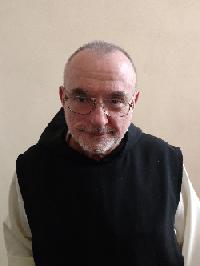Fifteenth Sunday in Ordinary Time
 One of the most used phrases in our language is What does it cost? We want to be sure we have enough money and if what we are getting is worth what we have to pay. It is common sense to budget our resources and live within limits. Going into debt can take the brightness out of our days. Stay within your limits. Take care of yourself.
One of the most used phrases in our language is What does it cost? We want to be sure we have enough money and if what we are getting is worth what we have to pay. It is common sense to budget our resources and live within limits. Going into debt can take the brightness out of our days. Stay within your limits. Take care of yourself.
We appreciate those limits which protect our safety: speed limits, railings, dosage limits, expiration dates. Laws are the result of a collective wisdom intended to help us live well. They may prescribe and prohibit, but the restraints are acceptable. Our religion articulates limits which emanate from a knowledge of God’s will and we find safety, security and salvation in abiding by them. We may even see ourselves as justified and at rights with God. He is then less likely to be a threatening presence and we are free to pursue our interests in life. God is in His heavens. Distant, but benign. What is written in the Law? We have the correct answers. You have answered correctly. We are law abiding. We have paid our dues. We know what it has cost.
 The priest and Levite of today’s Gospel passed by on the other side. They kept their distance at the cost of not despoiling their ritual purity and jeopardizing their religious and political functions. They knew what is written in the Law. They were respecting their priorities and they are not castigated for that. That was how they read the Law.
The priest and Levite of today’s Gospel passed by on the other side. They kept their distance at the cost of not despoiling their ritual purity and jeopardizing their religious and political functions. They knew what is written in the Law. They were respecting their priorities and they are not castigated for that. That was how they read the Law.
Passing by on the other side can excuse us from involvements which lead to frustration and suffering with no pay off. If you don’t see what is happening, then you don’t have to do anything. We are just as well off by staying within our limits.
Don’t raise the bar of expectations too high. Hurdling them once doesn’t mean you can hurdle them again. Keeping a safe distance is less risky. It is one way to read the Law.
 However, this smells like a recipe for living in a world of cheap faith and grace – phrases which marked the thinking and life of Dietrich Bonhoeffer. Cheap grace is undisturbing and lives within safe limits. It is different from costly faith and grace which bring us to our limits and call us to go beyond them. It is when we are at our limits that we become open to the call and movement of God’s unlimited grace and love. He doesn’t keep his distance and opens wider horizons for us to enter. It is something very near to you, you only have to carry it out.
However, this smells like a recipe for living in a world of cheap faith and grace – phrases which marked the thinking and life of Dietrich Bonhoeffer. Cheap grace is undisturbing and lives within safe limits. It is different from costly faith and grace which bring us to our limits and call us to go beyond them. It is when we are at our limits that we become open to the call and movement of God’s unlimited grace and love. He doesn’t keep his distance and opens wider horizons for us to enter. It is something very near to you, you only have to carry it out.
The grace which brings us to life was not cheap. Through him to reconcile all things for him, making peace by the blood of his cross. St. Paul reminds us that you have been bought at a great price. What is the cost of our salvation, our healing? Each one of us is that man, robbed, beaten, stripped and half-dead.
 Christ is the Samaritan who makes himself our neighbor (“fellow human”) by dissolving the distance between God and humanity out of his sheer compassion. His heart was broken open in mercy which poured itself out in crossing over to our side in unlimited care for us. Our healing is in receiving this mercy and becoming instruments of this same care and mercy in the inn of our small worlds. The Lord keeps coming and dropping off more hopeless cases for us to love back to life. The mystery of life that Christ reveals is a love that passes beyond its own limits and does not ask the cost. I shall repay you on my way back. Trust me.
Christ is the Samaritan who makes himself our neighbor (“fellow human”) by dissolving the distance between God and humanity out of his sheer compassion. His heart was broken open in mercy which poured itself out in crossing over to our side in unlimited care for us. Our healing is in receiving this mercy and becoming instruments of this same care and mercy in the inn of our small worlds. The Lord keeps coming and dropping off more hopeless cases for us to love back to life. The mystery of life that Christ reveals is a love that passes beyond its own limits and does not ask the cost. I shall repay you on my way back. Trust me.
